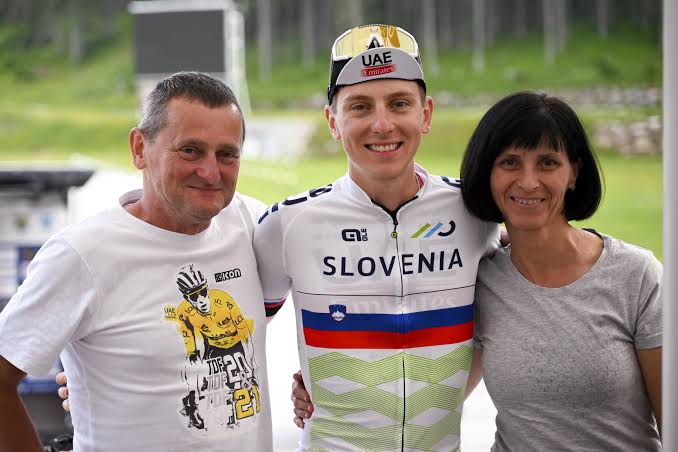While Vingegaard may not be widely regarded as more talented than Pogacar, his victories highlight the unpredictable nature of cycling—demonstrating that even a rider with less inherent skill can reach the pinnacle of success when the conditions align.

Jonas Vingegaard’s triumph in the Tour
de France has been a subject of intense
debate in the cycling world, especially in
light of the fierce rivalry between him
and Tadej Pogacar. The two have been at
the forefront of cycling’s grandest event
for the past few years, with each
securing two Tour wins over the other.
However, Belgian cycling expert and
analyst Jose de Cauwer has now cast a
harsh light on Vingegaard’s successes,
suggesting that his victories may not be
fully deserved when compared to the
apparent class difference between him
and Pogacar.
Speaking in an interview with *Het
Nieuwsblad*, De Cauwer shared his
perspective on the rivalry between
Vingegaard and Pogacar, two of the
biggest stars in modern cycling. De
Cauwer, renowned for his insight into
the sport, doesn’t mince his words. He
suggests that Vingegaard’s victories in
the Tour de France were more down to
circumstances than pure talent and that,
in terms of cycling class, Pogacar
remains the clear superior.
“As long as Pogacar maintains this level,
there will remain a clear difference,” De
Cauwer states, acknowledging that the
Slovenian’s dominance in the race is still
significant. He also reveals his thoughts
on Belgium’s rising star, Remco
Evenepoel, and his potential future
victories in the Tour de France. De
Cauwer does not outright dismiss
Evenepoel’s chances, but his comments
about Vingegaard suggest that the
Danish rider’s two Tour victories were
largely opportunistic in nature.
In his sharp critique of Vingegaard, De
Cauwer explains that in terms of pure
talent, he does not believe Vingegaard
ranks above Evenepoel. He goes further
by stating, “Actually, Vingegaard should
never have won a Tour, given the
difference in class to Pogacar.” For De
Cauwer, the implication is that
Vingegaard’s two Tour victories, while
impressive, were due to Pogacar’s
misfortunes or tactical missteps rather
than any inherent superiority in
Vingegaard’s racing capabilities.
It’s important to note that Vingegaard’s
wins at the Tour de France, especially in
2022 and 2023, were no flukes. He
demonstrated great skill, resilience, and
consistency, particularly in the high
mountains, which have become a
hallmark of the Danish rider’s strengths.
Yet De Cauwer’s comments reflect the
ongoing perception that Pogacar, when
at his peak, is the superior rider.
Pogacar’s strength on the climbs and
versatility across different terrains have
set him apart, and many cycling fans
view his dominance as an established
fact in the sport.
De Cauwer’s harsh assessment, however,
is not purely an attack on Vingegaard but
rather a reflection on the depth of talent
in cycling today. His comments
underscore the belief that while
Vingegaard has been able to capitalize
on moments when Pogacar faltered,
Pogacar’s raw talent is at a different
level. It highlights the feeling among
some in the cycling community that
Vingegaard’s Tour wins have come at a
time when Pogacar was less than fully at
his best, such as in 2022, when Pogacar
lost the Tour after suffering a series of
setbacks, including a dramatic loss of
time during a pivotal stage in the
Pyrenees.
This debate also ties into a broader
conversation about the potential for new
champions to rise in the coming years.
De Cauwer’s remarks about Evenepoel
suggest that the Belgian rider, still young
and brimming with potential, could be
the next rider to challenge for the yellow
jersey. However, for Evenepoel to reach
the level of Pogacar, let alone surpass
him, he would need to hone his skills and
experience, especially in stage races as
grueling and unpredictable as the Tour
de France.
Despite De Cauwer’s critical view of
Vingegaard’s Tour victories, it’s worth
noting that the Danish rider’s
performance cannot be completely
overshadowed. His grit and
determination, particularly in tough
moments, have earned him respect.
While Pogacar’s dominance has been
undeniable, Vingegaard has proven
himself a worthy rival, even if the debate
about his place in history continues to be
shaped by his ongoing battles with
Pogacar.
In the end, De Cauwer’s comments shed
light on a fascinating and ongoing debate
in cycling, where talent, timing, and race
dynamics often collide. Vingegaard may
not be universally considered a more
talented rider than Pogacar, but his
victories serve as a testament to the
unpredictable nature of the sport—
where even a rider with less natural
ability can rise to the top under the right
circumstances.


